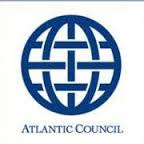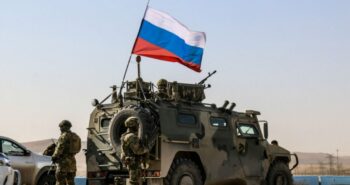Karim Mezran

Libya is still divided between two governments: the Government of National Accord (GNA) headed by Abdul Hamid Dbeibah in Tripoli and a government in Benghazi supported by the warlord Khalifa Haftar. Western countries seem to accept this status quo in Libya favored by the new post-Muammar Gaddafi elites.
As long as no Western nation shows interest in stabilizing Tripoli’s political system, the country remains mired in institutional limbo, allowing corruption to flourish. While the Europeans are primarily concerned with irregular migration and thus find it convenient to deal with a semi-anarchic situation; the United States is concerned with terrorism and the spread of Islamist organizations such as ISIS throughout the region, and pays no concern over who governs Libya as long as extremist groups are contained. This vacuum not only invites external intervention but also presents Russia as the most conspicuous, power-hungry player poised at Libya’s doorstep.
Following the eruption of Libya’s civil war, the conflict swiftly escalated into a matter of international concern, prompting various international actors to align with different factions based on their strategic interests. Turkey and Qatar directly and militarily support the GNA, while most other nations, while formally recognizing the government, play both sides to their advantage. General Haftar, however, is supported by Egypt, the United Arab Emirates, and Russia. Nevertheless, in 2020, an opportunity to stabilize Libya appeared thanks to the support of Turkish forces leaving Cyrenaica in Russian forces’ hands.
At first, the Russian penetration in Libya was limited to a few hundred instructors for General Haftar’s LAF in 2015 and 2016. It was only around late 2018 that these Russian soldiers were substituted by a couple of thousand—mostly Russian—mercenaries hired by the Wagner Group, a Russian company owned by a close friend of the Kremlin’s leader, Yevgeny Prigozhin, who died in a suspicious plane crash after his mercenaries attempted a coup in Russia in 2023.
Wagner’s presence did not take place suddenly. It was preceded by constant courting by the Russian top establishment, General Haftar, his family, and his officers, not only with generous provisions of weapons and equipment but also with a public show of support for Haftar’s political positions and views, which consisted mainly in his ambition to rule over the whole country. Thus, the Russians had established a strong foothold in Libya by the end of 2019 and the beginning of the attack on Tripoli. All of this happened with almost no reaction from the United States and its NATO allies, even though this has brought armed Russian troops less than a few hundred miles from the southern shores of Italy, the Southern flank of NATO.
This became even more evident after Russia invaded Ukraine in early 2022 as Russian presence in Libya started to raise some questions among commentators, pundits, and military strategists. Still, even when confronted by this evidence, western decision-makers seemed to pay scant attention to the issue. The truth is that the US diplomacy and political establishment in general in the years between 2014 and 2022 were not receptive to any alarm coming from Libya since they had practically checked out mostly due to the shock of the assassination of US Ambassador to Libya, Chris Stevens, in 2012. Since then, the US has preferred to delegate the task of untangling the Libyan issue to the Europeans and the United Nations.
Despite the presence in Tripoli of the United Nations Secretary-General Guterres on April 4, 2019, on a visit with Libyan Prime Minister Fayez Sarraj, Haftar launched his troops in a sudden attack against Tripoli. The US barely reacted, limiting itself to publishing a few diplomatic notes protesting the military operation. It was a worldwide deafening silence that met Haftar’s aggression. The US position sounded to Haftar like a green light for the attack. The Russian component of the aggressor’s forces was primarily formed by contractors—almost all from Moscow’s special forces hired by the Wagner Group. The Russians constituted the better-trained and equipped contingent of Haftar’s army and were the ones who fought harder and got closer to the center of Tripoli. The intervention of Turkish troops in defense of the legitimate government forced the Russians to abandon the capital’s outskirts and withdraw behind the Sirte line about halfway between Tripoli and Benghazi. After a truce was declared between the parties, only about 600 Russian mercenaries remained in Libya, mainly to guarantee that Western Libyan troops and their Turkish allies would not stage a blitz and charge toward Benghazi.
At the end of 2021, reports of an expansion of Russian forces— as it became hard to distinguish Wagner contractors from regular troops—began to appear in the Western press, and it was revealed that Russians were penetrating the territories of countries in the African Sahel ostensibly to protect their economic interests, including mining investments. While this could well be true, they were there with a different purpose, as it was revealed by a series of military coups that mainly overthrew pro-western governments in favor of military dictators who showed evident pro-Russian inclinations.
The Russians penetrated the territories and political environment of the Sahel countries with the precise purpose of intervening in their internal affairs. Russians are very thorough in their destabilization plans since they do not limit the penetration of a particular country only to their armed forces but, as the Libyan case proves, extend the destabilization to the economic area as well. Between 2016 and 2020, the Central Bank of Libya branch, located and operating in the east under the control of General Haftar, contracted the Russian state-owned Joint Stock Company Goznak to print its version of the Libyan dinar even though Haftar’s administration did not have access to collateral, such as gold, and thus in open violation of various international norms as well as Libya’s Banking Act. The issue of these false banknotes in the order of billions of dollars in Libyan dinars is tied to Haftar’s plans of conquest, as shown by data that noted that 4.5 billion Libyan dinars ($0.93 billion in 2019 value) were dispatched in four shipments from February to June 2019, just as Haftar attacked Tripoli in April 2019.
It is estimated that Russians flooded the Libyan market with at least the equivalent in Libyan banknotes of more than 10 billion dollars, most of which paid for Haftar’s army and civil officials. The destabilizing effect of these maneuvers is self-explanatory. There are also unconfirmed rumors of another quantity of counterfeited bills being smuggled again into the Libyan market at the beginning of 2024. Despite all this evidence, coupled with the expulsion of French troops from these countries, there was still no American reaction besides some mid-level officials’ “outrage” and vague calls for the return of democracy. With all the above-described strategies, Russia is attempting to establish itself as the dominant power in Libya to control the territory of the country and, from there, safely project its power towards other North African countries and even further south like Mali, Burkina Faso and Niger.
The ups and downs of Russia’s war against Ukraine, compounded with the tragic events of October 7, 2023, in Israel and following more than six months of the war in Gaza with all the international consequences that these conflicts brought about, absorbed the US attention and capacity to react, even more so than before. But Washington and its allies cannot ignore anymore the importance of stabilizing Libya through a constant, inclusive, and transparent political process accompanied by a forceful action of resistance and pushback against the Russian infiltration by establishing in Libya a new unity government that could lead the way towards this objective. This would go a long way to gratifying the population and winning their hearts and minds to Western values.
***
Karim Mezran is the director of the North Africa Program at the Atlantic Council’s Middle East Programs.
______________





